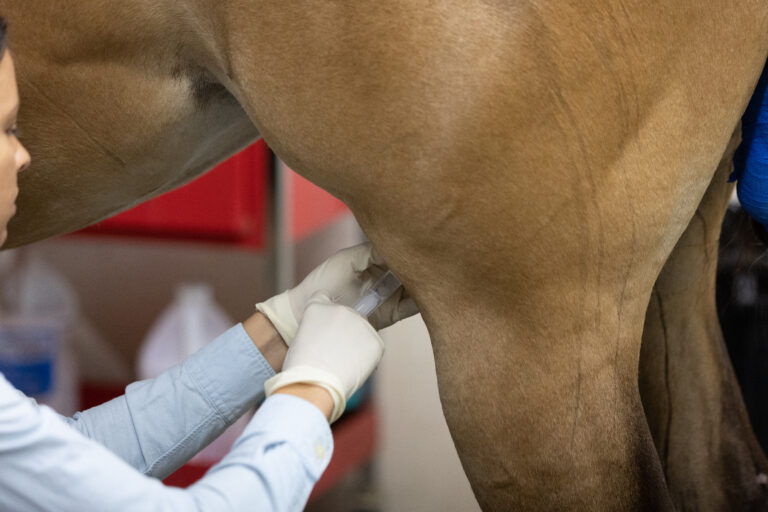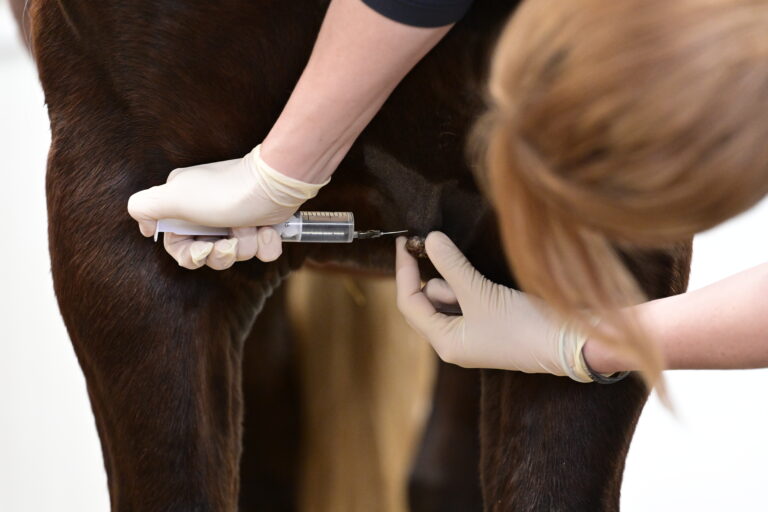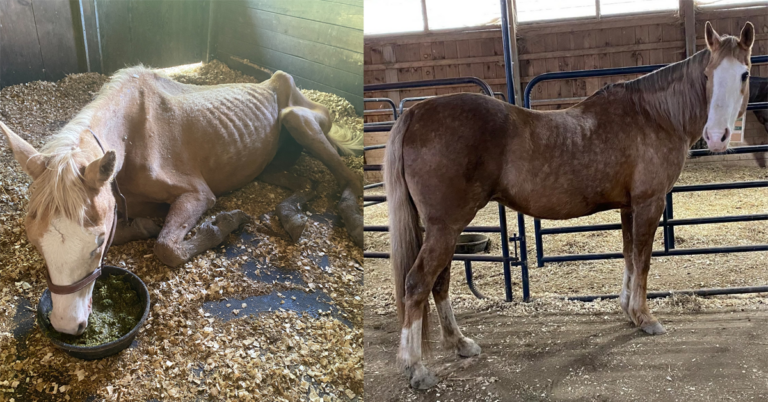
Running an ethical veterinary practice can be challenging at times. Ethics is a broad term. It explores the nature of moral behavior and specific moral choices that might need to be made. In general, moral norms for ethical conduct are common to humans and transcend cultures, regions, religions and other group identities. They make up the “golden rules” (e.g., not to kill or harm or cause suffering to others; not to steal; not to punish the innocent; to be truthful; to obey the law; to nurture the young and dependent; to help the suffering; and to rescue those in danger).
There are also ethical norms for groups arising from culture, religion or profession. These norms typically include responsibilities, ideals and professional standards. For example, the physician’s “accepted role” is to provide competent and trustworthy service to his or her patients. Ethics is also an inherent part of clinical veterinary medicine. The veterinarian has an ethical obligation to benefit the patient, to avoid or minimize harm, and to respect the values and preferences of the owner.
Beneficence, Nonmaleficence, Autonomy and Justice
Beneficence, nonmaleficence, autonomy and justice are the four fundamental principles of medical ethics. The principle of beneficence is the obligation of the physician to act for the benefit of the patient. It is also the obligation to promote the patient’s welfare. Nonmaleficence is the obligation of a physician not to harm the patient; to thoroughly weigh the benefits against risks of all interventions and treatments; to avoid those that are excessively difficult for the patient to tolerate; and to choose the best course of action without regard for financial reward.
The principle of autonomy allows for clients (or patients, in human medicine) to have the power to make rational decisions and moral choices. They can also make decisions for their animals. Justice involves the need for truth, which includes informed consent. The requirements of informed consent for a medical or surgical procedure include that the client must understand the risks and benefits, be allowed to decide, receive a full disclosure, comprehend the disclosure, act voluntarily and consent to the proposed procedure.
Principles of Veterinary Medical Ethics (PVME)
In addition to these principles, according to the AVMA, all veterinarians are expected to adhere to a progressive code of ethical conduct known as the Principles of Veterinary Medical Ethics (PVME; see www.avma.org/resources- tools/avma-policies/principles-veterinary-medical-ethics-avma).
Among the principles are the following:
- A veterinarian shall be influenced only by the welfare of the patient, the needs of the client, the safety of the public and the need to uphold the public trust vested in the veterinary profession, and shall avoid conflict of interest or the appearance thereof.
- A veterinarian shall not allow any interests, especially financial interests, other than those mentioned above to influence the choice of treatment or animal care.
- A veterinarian shall not offer or receive any financial incentive solely for the referral of a patient.
- Performance of surgical or other procedures in any species for the purpose of concealing genetic defects in animals to be shown, raced, bred or sold as breeding animals is misleading to the public and is unethical.
- Veterinarians must not defame or injure the professional standing or reputation of other veterinarians in a false or misleading manner. Veterinarians must be honest and fair in their relations with others, and they shall not engage in fraud, misrepresentation or deceit.
- It is unethical for veterinarians to identify themselves as members of an AVMA-recognized specialty organization if such certification has not been awarded and maintained. Only those veterinarians who have been certified by an AVMA-recognized veterinary specialty organization should refer to themselves as specialists.
The AAEP describes ethical professional behavior in this way: “Professional ethics embodies the behaviors of honesty, integrity and kindness while obeying rules and regulations set forth with mutual respect for opinion and preservation of dignity in interpersonal relationships. The conduct should be in a manner that will enhance the worthiness of the profession. The ethical practice of medicine includes those remedies and treatments that have, as their short or long-term goal, the health and welfare of the horse.”
Ethical Equine Veterinary Practice Differences

Equine practice differs from companion animal practice in many ways, including the number of ethical dilemmas that arise. The multiple relationships that horse doctors have with trainers, riders and owners can contribute to these situations. Sometimes, each of these people have different objectives. Some of these objectives might not have the horse’s best interests in the forefront.
For example, a trainer might want the horse to compete in the top levels to increase the trainer’s financial success. The rider might be looking for personal achievement and accolades through competition. The owner is seeking to increase the horse’s value through a successful performance.
If the horse has a condition that, with treatment, could allow it to compete—but with the risk of an exacerbation of the problem—who speaks for the horse? Where does the veterinarian’s moral obligation begin and end? Which of
the principles listed above does your decision satisfy? Each doctor’s answer might be somewhat different, depending on his or her personal values.
Clash of Values
Difficulties most often arise when a veterinarian’s personal values clash with those of an employer or client. For example, a client asked me early in my career to euthanize a brightly colored blanket Appaloosa so that the owner could skin the carcass to make a rug. Horrified, I refused the request. I never knew what happened, as I never heard from the client again. But there was no possible way my values would allow me to participate.
However, maybe a different veterinarian would have taken the position that facilitating a good death (the definition of euthanasia) was of the highest service to the horse. The vet might have considered that the owner could take matters into his own hands without adequate knowledge to effect a humane death. This story highlights the fact that individual values are the foundation of individual ethical behavior. It also helps to explain why position statements set out by professional associations can assist doctors in evaluating moral choices.
Multiple Personalities

When multiple veterinarians work together at a practice, having shared values is helpful in creating a cohesive practice identity. In addition, those common beliefs will often lead to similar ethical stances among the individuals when challenging situations arise.
Young veterinarians can seek out ethical equine veterinary practices by asking careful questions of potential employers. By preparing a description of several situations that would pose an ethical dilemma, a job seeker could query the potential employer as to how he or she would handle that situation. The jobseeker could also determine whether there was uniformity in the approach across the practice. A simple method would be to ask what the practice’s most important values are. Then, they need to make sure they are in alignment.
The conflict of financial interests or incentives is present in many situations. A farm manager might receive discounted care for his or her personal broodmare. In return, the manager delivers the care of the rest of the mares boarding at the farm to a particular veterinarian or practice. A show horse trainer typically dictates which veterinarian works on the horses he or she trains. This can bring in substantial revenue but can lead to uncomfortable pressure to follow the prescriptive requests of the trainer. An example might be when the call comes in to prep horses with multiple joint injections before an important event.
A doctor could also be asked to do a pre-purchase examination for a new client. If that horse is a regular patient, it poses a dilemma. Each individual must find his or her comfort zone in these situations. This way, the practitioner can ensure he or she is meeting professional standards.
Specialist vs. Special Interest
A veterinarian might wish to limit his or her practice to a particular area of interest. However, that individual must be careful not to represent him- or herself as a “specialist” unless board certified. Using the wording “a special interest in” or “focusing on” can be ethical ways to indicate this limitation and interest.
Because ethical stances are shaped by personal values, it is important for veterinarians to seek to fully understand others’ perspectives. Avoid judging them negatively if beliefs or behaviors differ. Using an attitude of curiosity, a doctor can query a client or a colleague to understand how that individual sees an issue. After listening with an open mind, often the veterinarian finds that the other person has a credible foundation to support their view.
Despite this understanding, veterinarians should not acquiesce to perform services that violate their values and ethics. Studies have shown that ethical dilemmas that compromise values and ethics often markedly increase work-related stress.
Take-Home Message About Running an Ethical Veterinary Practice
Each day, seek to live up to your values in everything you do. When seeking to hire an associate or be hired as one, explore values and ethics. By committing to ethical equine veterinary practice every day, veterinarians can decrease their risks for depression and anxiety by minimizing their moral distress.
Embracing their values as their personal True North can help doctors thrive by supporting their deepest beliefs in their work. Although this can be difficult at times, the rewards of inner peace are substantial.




